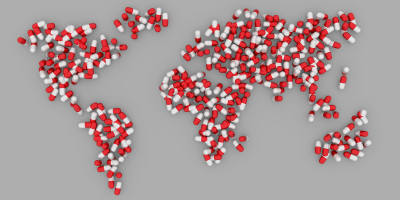Medication programmes are a chance for free-of-charge treatment with the use of non-standard medicines in the case of severe diseases, such as oncological conditions. These programmes are designed for those sick persons in whom treatment with normally available medicines have proven unsuccessful. They are separately contracted by the National Health Fund (NFZ).
A medication programme is a kind of a health scheme which covers the use of medicines which are not available on a regular basis within the ambit of the guaranteed healthcare services.
Such programmes are used to finance the treatment of selected diseases with specified medications. The list of substances which may be used in medication programmes is determined by a register of the Minister of Health. The list is updated every two months as part of the list of reimbursed medicines.
Who can be covered by the programme?
A leading physician decides on the inclusion of selected patients into the medication programme and it is the role of the National Health Fund to finance the services.
Each programme contains a description of the criteria to be met by the patient so that they can be covered by the treatment. The criteria specify, inter alia, the advancement level of the disease. In the case of some diseases a panel must additionally be convened to decide whether the treatment is going to be granted to the given patient.
Medication programmes may be conducted within the outpatient care, one-day hospital care or hospitalisation. The mode in which a patient uses the programme is decided by the physician, depending on the method of administering the drug, the time it is administered and the possible need to monitor the patient after the drug has been administered for any possible consequences or side effects.
How medication programmes are conducted
These programmes are conducted, among other reasons, for the treatment of breast cancer, brain gliomas, prolonged bone marrow leukaemia, primary immunodeficiency in children, spasticity in children brain paresis, multiple sclerosis, chronic hepatitis C, Leśniowski-Crohn's disease, prolonged lung infections in patients with mucoviscidosis and acute psoriatic arthritis.
The services within the scope of medication programmes are provided by those healthcare establishments which have signed contracts with NFZ.
Non-standard chemotherapy is also a type of medication programme. This is a procedure of administering a drug with the use of substances not listed in the register of substances applied in chemotherapy, or when the drugs are administered differently from that according to the current indications developed by the producer.
This kind of treatment is usually used in the most severe cases and the cost of such medications is high. Non-standard chemotherapy observes a period of a maximum of three months or three cycles of treatment. Depending on the state of health of the patient, the leading physician decides on the termination of the treatment in the scope of the programme on or its continuation.
Similarly to the medication programmes, it is a leading physician who decides which sick person qualifies for treatment within the ambit of non-standard chemotherapy. The application by the leading physician for financing, addressed to the director of the relevant NFZ branch, must be confirmed by the voivodeship consultant in the specified area. Services in the field of non-standard chemotherapy are to be provided on the current basis up to the end of 2014.









Comments (0)